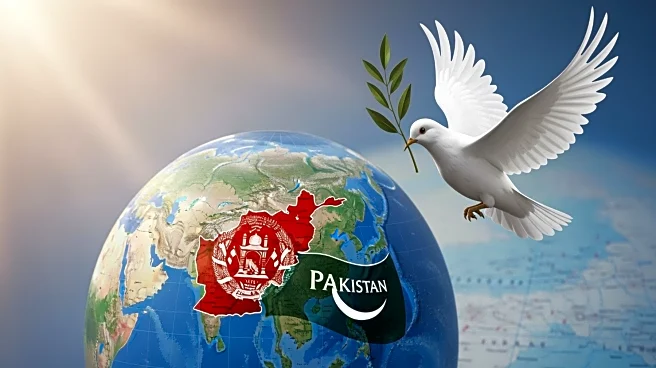What's Happening?
President Trump has expressed confidence in resolving the ongoing crisis between Afghanistan and Pakistan 'very quickly' as peace talks continue in Istanbul. The two countries have been involved in a security
dispute, with each accusing the other of aggression during recent clashes. The conflict has raised concerns in a region where groups like al-Qaida are attempting to regain influence. The talks aim to transform a fragile ceasefire into a lasting peace framework. Trump made his remarks during the ASEAN Summit in Malaysia, highlighting his commitment to resolving the issue.
Why It's Important?
The resolution of the Afghanistan-Pakistan crisis is crucial for regional stability and security. The conflict has the potential to escalate, affecting not only the two countries but also neighboring regions. President Trump's involvement could facilitate diplomatic efforts and strengthen ties between the U.S. and Pakistan, which has praised his role in defusing tensions with India earlier this year. A successful peace agreement could reduce the threat of militant activities and improve relations between Afghanistan and Pakistan.
What's Next?
The peace talks in Istanbul are focused on establishing a durable framework for border security and ceasefire monitoring. Both countries have submitted drafts outlining their demands and conditions for peace. The outcome of these negotiations will depend on the willingness of both sides to compromise and address key issues. Trump's remarks may encourage further diplomatic efforts, but the situation remains delicate, with ongoing military activities along the border.
Beyond the Headlines
The crisis between Afghanistan and Pakistan highlights the complex geopolitical dynamics in the region, influenced by historical conflicts and the presence of militant groups. The peace process may require addressing deeper issues such as border management, refugee movements, and the role of external powers. Trump's involvement underscores the importance of U.S. diplomacy in regional conflicts, which could have long-term implications for U.S. foreign policy.










